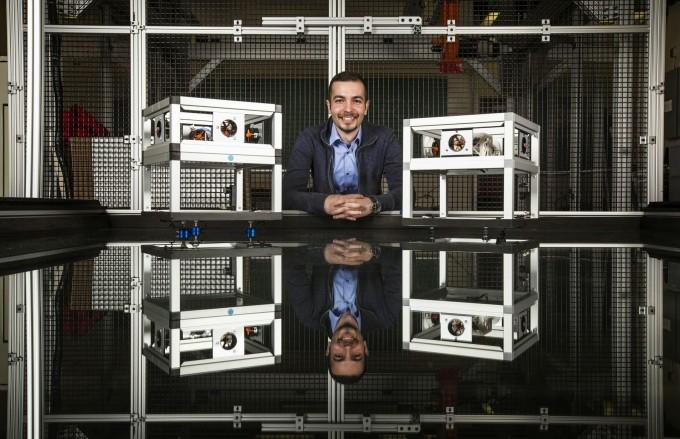By Hayley Hanks
“You would go to [a] doctor. And they would see what symptoms you have, and they would diagnose you, and they would get you to take medicine; we do the same thing, but we work on machines,” says PhD candidate Afshin Rahimi whose research at Ryerson University focuses on designing monitoring systems for transportation.
Rahimi, 26, is three years into his Aerospace and Engineering post-graduate program, he has already worked with mechanical systems for trains and aircraft engines.
Ideally he hopes to implement knowledge from his research in all mechanical systems for cost-efficiency purposes, which would help to further avoid system failures and to collect more information about systems in transportation.
“[Being] able to…diagnose or see the performance of the system at the moment, and then be able to predict the performance of the system in the future, that would save a lot of cost, and that would also improve the safety of the system, because you can have an estimate or a guess of what is going to happen in the future and be able to proactively prevent that,” said Rahimi.
Arriving in Canada in 2010 to pursue his master’s degree, Rahimi has always had a love for aerospace.
“I think it all started from the first time I saw an aircraft flying. But over the course of time, it was also the fact that it was one of the most challenging programs, and it had mechanical engineering in it, electrical engineering and computer engineering combined,” said Rahimi.
Since then, Rahimi has completed his undergraduate degree in aerospace engineering back home in Iran, before landing in Canada to complete his master’s degree in aerospace engineering at Ryerson. He began his PhD in 2012 and hopes to be done by 2017.
Rahimi’s wish list for Ryerson’s graduate programs includes more space, specifically for graduate students, more research facilities on campus and better funding for different graduate programs.
He believes that having a dedicated desk and space to do academic research proves to be very productive, otherwise, graduate students are in shared academic spaces with undergraduate students who have vastly different study habits.
“Maybe the mentality is a little bit different, so having a shared space may not be as productive,” said Rahimi.
Financially, Rahimi takes issue with the amount of funding the school gives out for research.
“Compared to other universities, I think Ryerson is one of the universities providing the least amount of funds for financial assistance for graduate students compared to tuition fee charges” said Rahimi.
When he is not doing his research, Rahimi has teaching assistantships with Ryerson’s aerospace department, where working alongside younger aerospace junkies is a highlight of his Ryerson experience.
“What I like about it is that I see students as they grow, because…once a year I have a second year course, and then in another one, another…fourth year course, and I get to see students when they’re in their second year and [again] when they’re in their fourth year,” said Rahimi.
For Rahimi his ideal career would allow him to work with industry to keep doing his research.
“[Getting] to implement the knowledge, and getting good pay. That, to me, is the dream job.”










Leave a Reply